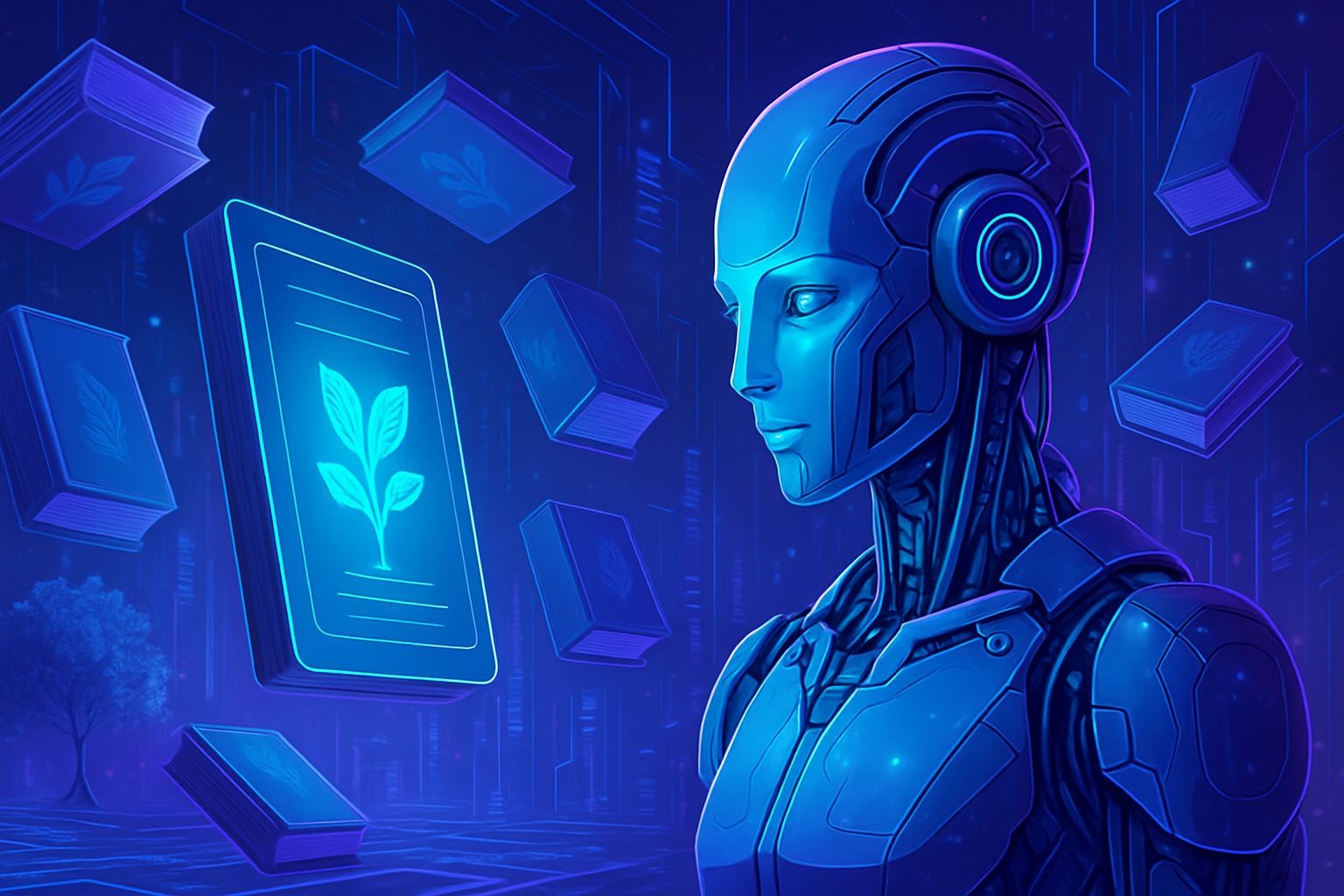An *alarming revelation* emerges from the world of natural remedies on Amazon. A study reveals that 82% of the books in this area may have been written by artificial intelligence. Such a situation raises significant questions about the authenticity of the content and the reliability of the information offered to readers. The implications of this invasion of AI-generated content could mislead consumers in search of health and well-being. What are the real consequences for the perception and use of natural remedies?
An alarming finding on natural remedies
A study conducted by Originality.ai reveals that a concerning percentage of 82% of titles in the natural remedies category on Amazon may be written by artificial intelligence. Through the analysis of 558 works published between January and September of this year, researchers highlighted the extent of the presence of content generated by algorithms, often without labeling or verification.
The implications for the herbalist community
The rise of these publications raises questions about the reliability of the information disseminated. Sue Sprung, a medical herbalist from Liverpool, harshly criticizes this trend. She describes most AI-generated content as ‘absolutely useless’. The capacity of artificial intelligence to sort reliable data from superfluous information appears clearly insufficient.
An illuminating case: Natural Healing Handbook
A work titled Natural Healing Handbook stands out in the best-seller category on Amazon. Described as a ‘toolbox for self-confidence’, this book encourages readers to seek solutions within themselves. The author, a certain Luna Filby, is presented as a 35-year-old herbalist from Australia. However, no trace of her existence or her brand, My Harmony Herb, could be found online.
The warning signs of artificial intelligence
Research from Originality.ai has unveiled revealing indicators of potentially self-generated content. Among these, the excessive use of the leaf emoji and author names inspired by nature such as Rose, Fern, and Clove appear as warning signals. These elements raise doubts about the veracity of the recipes and advice provided.
Disturbing references
It is worth noting that several books identified as potentially written by AI refer to controversial herbalists like Barbara O’Neill and Alfredo Bowman. These figures, already criticized for promoting unproven treatments for cancer, are frequently cited in literature generated by algorithms.
Reactions from the publishing world
Dan Conway, the CEO of the Publishers Association, calls on Amazon to act quickly to identify and label AI-generated content. The demand is clear: ‘Any book entirely written by an artificial intelligence program must be flagged,’ he emphasizes, highlighting the need to swiftly remove these works from sale.
Amazon’s measures in response to this issue
Amazon has responded by claiming to have strict content guidelines for the books sold. The company asserts that it uses both proactive and reactive methods to detect any content that violates its rules. Despite the controversies, it states that it invests considerable resources to ensure compliance with its guidelines and the removal of works that do not adhere to them.
The need for increased vigilance
The proliferation of unverified health books, often written by artificial intelligences, demands increased vigilance among consumers. Research and discernment remain essential requirements when exploring natural remedies. The sequence of these contents raises not only ethical questions but also concerns about public health and education.
Frequently asked questions about natural remedy books and artificial intelligence
What are the main findings of the study on the writing of natural remedy books?
The study revealed that 82% of titles in the natural remedies category on Amazon are likely written by artificial intelligence, indicating a high prevalence of unverified content.
Why is it concerning that so many books on natural remedies are written by artificial intelligence?
These books may contain incorrect or misleading information, which could mislead readers and compromise their health.
How can one tell if a natural remedy book was written by artificial intelligence?
Indicators such as excessive use of keywords, a repetitive writing style, or authors without a real online identity may signal AI-generated content.
What are the potential consequences of reading natural remedy books written by AI?
Readers may adopt unhealthy or ineffective practices based on unfounded advice, which could harm their well-being.
Do books written by artificial intelligences contain reliable research?
No, these contents often lack precise references and scientific validation, leading to the dissemination of false information in the health field.
What steps can be taken to identify AI content on Amazon?
To spot AI-generated content, readers are encouraged to check reviews, verify references, and research information about the author before purchasing.
Are there reliable natural remedy books on Amazon?
Yes, there are many works written by recognized and qualified authors in the field of natural medicine, but it is essential to do prior research.
How do platforms like Amazon manage AI-generated content?
Amazon states that it has implemented content guidelines and detection methods to identify and eliminate works that do not comply with these guidelines.
What should one look for in a good natural remedy book?
A good book should be written by an author with relevant qualifications, include references to academic research, and offer practical advice based on reliable data.






